Complete Dentures
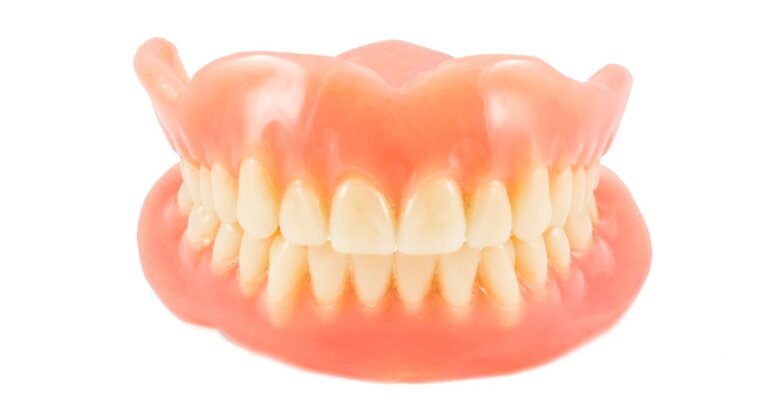
What Is A Complete Denture?
Complete Dentures come in two main types: conventional dentures and immediate dentures. Conventional dentures are created and fitted after any remaining teeth have been extracted, and the gums have healed, which usually takes a few weeks. On the other hand, immediate dentures are prepared in advance and are inserted immediately after tooth extraction, so you don’t have to be without teeth during the healing process.
Before deciding on whether A Complete Denture are right for you, there are some things you should know:
- Who Needs A Complete Denture?
- What Are The Advantages Of A Complete Denture?
- What Are The Alternative Treatments If I Do Not Choose A Complete Denture?
- How Much Does A Complete Denture Cost?
- What Are The Steps In The Complete Denture Procedure?
- How Long Does A Complete Denture Last?
- What Are Common Problems with A Complete Denture?
If you have any further questions about A Complete Denture or other dental services offered at Atlas Dental, please contact us.

Free Phone Consultation
Have questions about cosmetic dentures for missing teeth? Book a free phone consult with our Toronto dentist

5 star google reviews
Our patients love their cosmetic looking denture smile! See for yourself why patients choose Atlas Dental.

Book a denture appointment online
We make custom fitted dentures to help our patients smile confidently again.
Who Needs A Complete Denture?
Complete dentures are a valuable dental solution for individuals who have lost all of their natural teeth in either the upper or lower jaw or both. Tooth loss can occur due to various reasons:
- Complete Tooth Loss: When all the teeth in either the upper arch (maxillary) or the lower arch (mandibular) are missing, a complete denture is often the most suitable option to restore the appearance and function of the mouth.
- Severe Periodontal Disease: Advanced gum disease can lead to tooth loss, as the infection weakens the supporting structures of the teeth. In cases where the remaining teeth cannot be saved, complete dentures may be recommended.
- Extensive Tooth Decay: Untreated cavities and dental infections can cause irreparable damage to teeth, leading to tooth loss. In such cases, a complete denture can provide an effective and aesthetic solution.
- Accidental Trauma: Serious accidents or injuries to the mouth may result in the loss of multiple teeth, making complete dentures a viable option for restoring the oral function and appearance.
- Congenital Conditions: Some individuals may be born without certain teeth or with conditions that lead to the absence of teeth. Complete dentures can help in such cases to replace the missing teeth and ensure proper jaw alignment.
- Preparing for Tooth Extraction: In situations where a patient is scheduled to have their remaining teeth extracted, immediate dentures can be prepared in advance to be inserted right after the extractions, providing the patient with immediate tooth replacement during the healing process.
It’s essential to consult with a qualified dentist or prosthodontist to assess your specific dental needs and determine if complete dentures are the right option for you. They will conduct a thorough examination of your oral health, discuss your dental history, and explain the various treatment options available. If you have further questions about Complete Dentures, please contact us.
What Are The Advantages Of A Complete Denture?
Complete dentures offer numerous advantages for individuals who have lost all of their natural teeth:
- Restored Chewing Function: Complete dentures enable individuals to chew and eat a wide variety of foods more comfortably. With the ability to chew properly, the digestion process improves, promoting better nutrient absorption and overall health.
- Improved Speech: Tooth loss can affect speech clarity, leading to difficulties in pronouncing certain words and sounds. Complete dentures help in restoring proper speech patterns, allowing for better communication and confidence in social interactions.
- Enhanced Aesthetics: A complete denture not only replaces missing teeth but also restores facial volume, providing a more youthful appearance. The improved aesthetics contribute to a boosted sense of self-esteem and a positive self-image.
- Maintaining Facial Structure: When teeth are lost, the underlying jawbone may start to deteriorate due to lack of stimulation. Complete dentures support the facial muscles and prevent the collapse of facial structures, preserving a more natural facial contour.
- Affordable Tooth Replacement: Compared to some other tooth replacement options, complete dentures are a more cost-effective solution, making them accessible to a broader range of patients.
- Customized and Natural-Looking: Complete dentures are custom-made to fit each individual’s mouth, ensuring a comfortable and secure fit. Modern denture materials and techniques also provide a natural appearance, making the dentures blend seamlessly with the remaining oral structures.
- Immediate Dentures Option: For those who need to have their remaining teeth extracted, immediate dentures offer the benefit of having a functional set of teeth immediately after the procedure. This ensures that the patient doesn’t have to go without teeth during the healing period.
- Non-Invasive Treatment: Unlike dental implants, which require surgical procedures, complete dentures are a non-invasive treatment option for replacing missing teeth. This makes them an attractive choice for individuals who may not be suitable candidates for implant surgery.
- Easy Maintenance: Caring for complete dentures is relatively straightforward. Regular cleaning and proper oral hygiene practices help maintain their longevity and prevent oral health issues.
- Restored Confidence and Quality of Life: By providing the ability to smile, speak, and eat without concerns about missing teeth, complete dentures can significantly boost self-confidence and overall quality of life for individuals with tooth loss.
It’s important to note that while complete dentures offer these advantages, they may not be the best option for everyone. Some individuals may benefit more from other tooth replacement alternatives, such as implant-supported dentures. A consultation with a dental professional will help determine the most appropriate treatment plan based on individual needs, preferences, and overall oral health. If you have further questions about Complete Dentures, please contact us.
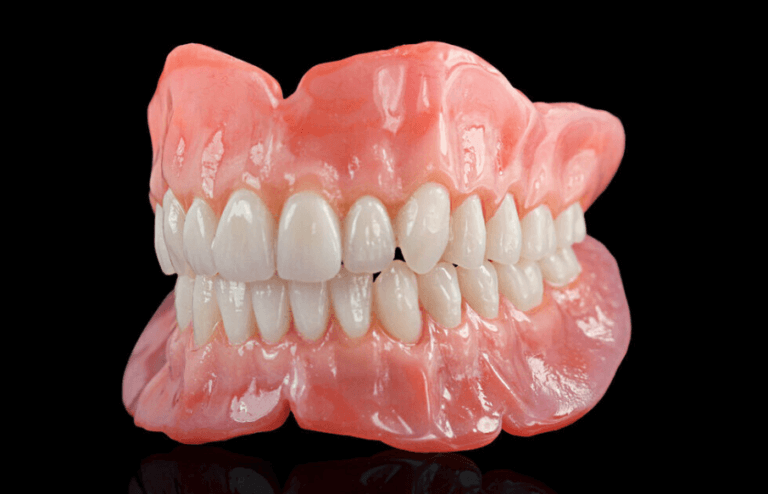
What Are The Alternative Treatments If I Do Not Choose A Complete Denture?
While complete dentures offer an effective solution for replacing missing teeth, they may not be the ideal choice for everyone. Here are some common alternative options to consider:
- Immediate Complete Denture: An immediate complete denture is a type of removable denture that is placed in your mouth immediately after the remaining natural teeth are extracted. These dentures are pre-fabricated and designed to fit the contours of your mouth. While they provide immediate tooth replacement, they may require adjustments as your gums heal and change shape over time.
- Tooth Supported Overdenture: An overdenture is a removable dental prosthesis that fits over a few remaining natural teeth. These remaining teeth act as anchors, providing better stability and retention for the overdenture. Overdentures offer a more secure fit compared to conventional complete dentures and can help preserve the jawbone by stimulating it through the remaining tooth roots.
- Implant Denture (Implant-Supported Denture): Implant dentures, also known as implant-supported dentures or overdentures, offer a more secure and permanent solution for tooth replacement. Dental implants are artificial tooth roots surgically placed into the jawbone, providing a stable foundation for the denture to attach to. Implant dentures offer exceptional chewing function and stability, eliminating concerns about denture slippage or discomfort. They also stimulate the jawbone, preventing bone loss, and promoting long-term oral health. Implant dentures can be either fixed (permanent) or removable, depending on the patient’s preferences and the dentist’s recommendations.
- Removable Partial Denture: If only a few teeth are missing rather than a full arch, a partial denture may be a suitable alternative. Partial dentures are removable appliances that replace multiple missing teeth, utilizing clasps or precision attachments to hold them in place. They are designed to blend with the remaining natural teeth for a seamless appearance and improved oral function.
- Dental Bridges: Dental bridges are fixed appliances that replace one or more missing teeth. They consist of artificial teeth (pontics) held in place by crowns on the adjacent natural teeth or dental implants. Dental bridges offer stability and a natural appearance, making them a popular choice for replacing missing teeth when dental implants are not suitable or desired.
- No Treatment (Leaving Gaps): While it’s essential to address tooth loss for various health reasons, some individuals may choose not to pursue any tooth replacement option. Leaving gaps in the mouth can lead to several issues, including difficulty in chewing, altered speech, and potential shifting of the remaining teeth over time. Moreover, tooth loss can result in jawbone deterioration, affecting facial appearance and overall oral health in the long run.
When considering the alternative treatments to complete dentures, it’s essential to consult with a qualified dentist or prosthodontist. Each alternative treatment has its own advantages and considerations, and choosing the right solution will contribute to optimal oral health and overall well-being. If you have further questions about Complete Dentures, please contact us.
Cost of Complete Dentures
Dentures can vary widely in cost depending on several factors, including the type of complete denture, whether it is for the upper or lower jaw, the materials used, how many dental implants are involved, and the location of the dental practice. Therefore, depending on the type of complete denture you are looking for, the cost for the denture prosthesis alone can range from $577 to $2037 plus dental lab fee. The codes relevant to dentures in the Ontario Dental Association’s Suggested Fee Guide appear as follows:
Dentures, Complete, Standard (e.g. Complete Denture)
- 51101 – Maxillary: $1115 + Dental Lab Fee
- 51102 – Mandibular: $1419 + Dental Lab Fee
Dentures, Complete, Provisional (e.g. Immediate Complete Denture)
- 51601 – Maxillary: $577 + Dental Lab Fee
- 51602 – Mandibular: $769 + Dental Lab Fee
Dentures, Complete, Overdentures, Tissue Borne, Supported by Natural Teeth with or without Coping Crowns, no Attachments (e.g. Tooth Supported Overdenture)
- 51711 – Maxillary: $1656+ Dental Lab Fee
- 51712 – Mandibular: $2037+ Dental Lab Fee
Dentures, Complete, Overdentures, Tissue Borne, Supported by Implants with or without Coping Crowns, no Attachments (e.g. Implant Denture; cost of dental implants not included)
- 51721 – Maxillary: $1656 + Dental Lab Fee
- 51722 – Mandibular: $2037 + Dental Lab Fee
Dentures are sometimes considered a supplementary service by dental insurance plans and may or may not be covered by your dental insurance. Be sure to find out from your dental insurance plan provider how much you are eligible for before going ahead with dental treatment. Your dentist can help you submit an predetermination to your dental insurance. Our fees are consistent with the ODA Fee Guide.
For patients without dental insurance, Atlas Dental is pleased to offer dental financing through Dentalcard. Affordable payment plans start at 7.95% for terms of 6 months to 6 years. To learn more about Dentalcard dental treatment financing, follow this link.
What Are The Steps In The Complete Denture Procedure?
Obtaining a complete denture typically spans multiple dental appointments and requires collaboration between you and your dental care team:
- Initial Consultation: The first step is to schedule an initial consultation with a dentist or prosthodontist who specializes in dentures. During this appointment, the dental professional will examine your oral health, review your medical and dental history, and discuss your concerns, goals, and preferences for the denture. This is a crucial opportunity for you to ask questions and express any specific requirements you may have.
- Comprehensive Examination: A comprehensive dental examination follows, which may include X-rays, impressions, and photographs of your mouth. These diagnostic tools help the dental team assess the condition of your gums, jawbone, and remaining teeth (if any) to plan the most suitable denture treatment for you.
- Dental Impressions: Accurate dental impressions of your upper and lower jaws are taken to create an exact replica of your mouth. These impressions serve as the basis for crafting the custom denture, ensuring a precise fit that maximizes comfort and stability. Please review these denture pre-visit instructions before your visit.
- Bite Registration: To record how your upper and lower teeth come together when you bite, a bite registration is taken. This information is essential for creating a balanced bite and ensuring that your dentures function correctly during chewing and speaking.
- Denture Design and Fabrication: Based on the impressions, bite registration, and other measurements, your dentist or prosthodontist will design your complete denture. Modern dental laboratories use advanced materials and technology to create dentures that closely resemble natural teeth in shape, size, and color. The denture fabrication process may take several days, during which you may be given temporary dentures to wear.
- Try-In Appointment: Once the denture is fabricated, a try-in appointment is scheduled. During this visit, you will try on the denture to evaluate its fit, comfort, and appearance. Your dentist will make any necessary adjustments to ensure the denture fits securely and comfortably in your mouth.
- Final Fitting and Delivery: After the necessary adjustments are made, and you are satisfied with the denture’s appearance and fit, the final denture is prepared for delivery. Please review these denture post-insertion instructions to ensure proper care for your new denture.
- Follow-Up Appointments: After receiving your complete denture, follow-up appointments will be scheduled to monitor your progress and make any additional adjustments if needed. These appointments are essential to ensure that your denture continues to fit well and meets your expectations.
Working closely with your dental care team, you can achieve a well-fitting and aesthetically pleasing complete denture that enhances your smile, restores oral function, and improves your overall quality of life. If you have further questions about Complete Dentures, please contact us.
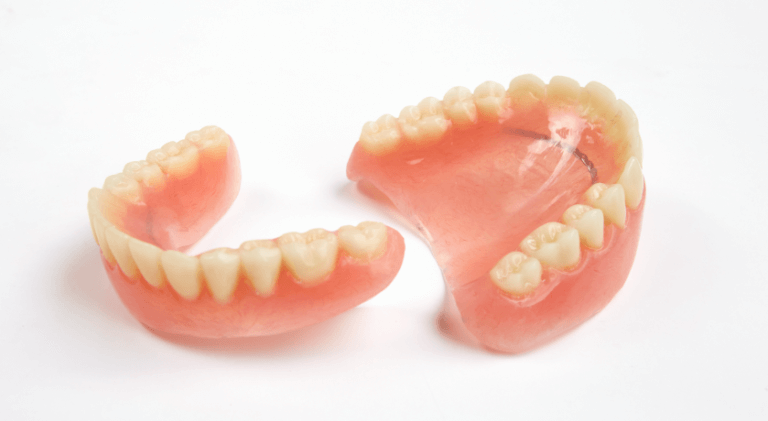
How Long Does A Complete Denture Last?
On average, a well-maintained and properly cared for complete denture can last between 5 to 10 years. The lifespan of a complete denture can vary depending on several factors:
- Quality of Materials and Craftsmanship: The quality of the materials used to create the denture and the skill of the dental laboratory in crafting it play a significant role in its lifespan. High-quality dentures made from durable materials tend to last longer than cheaper alternatives.
- Daily Wear and Tear: Dentures are subject to daily wear and tear from activities such as eating, speaking, and cleaning. Over time, this can lead to gradual wear of the denture’s surface and affect its fit and function.
- Changes in Oral Structures: Even with a complete denture, the bone and gum tissues in the mouth can undergo changes over the years. Jawbone resorption and gum shrinkage are natural processes that can alter the fit of the denture over time, necessitating adjustments or even a replacement denture.
- Proper Denture Care: Regular and proper denture care is essential for maintaining the denture’s longevity. Dentures should be cleaned daily, soaked in denture cleaning solutions as recommended by the dentist, and handled with care to avoid accidental damage.
- Lifestyle and Habits: Certain lifestyle habits, such as teeth grinding (bruxism), biting on hard objects, or using the denture as a tool, can accelerate denture wear and reduce its lifespan.
- Weight Changes and Facial Aging: Significant weight loss or gain and changes in facial structures due to aging can also impact the fit of the denture. If the denture becomes loose or uncomfortable, it may need to be adjusted or replaced to ensure proper function and aesthetics.
- Regular Dental Check-Ups: Regular visits to the dentist are crucial for monitoring the condition of the denture and assessing any changes in the oral structures. Dental professionals can identify issues early and recommend appropriate adjustments or replacements.
- Denture Relining and Rebasing: Over time, the shape of the mouth may change, affecting the fit of the denture. Denture relining or rebasing is a process that involves modifying the denture to better adapt to the changes in the oral structures.
If you experience discomfort, difficulties with chewing or speaking, or notice visible signs of wear on your denture, it’s essential to consult with your dentist or prosthodontist for a thorough evaluation. If you have further questions about Complete Dentures, please contact us.
What Are Common Problems with A Complete Denture?
While complete dentures offer valuable benefits in restoring oral function and aesthetics, like any dental prosthesis, they can present certain challenges and problems. Understanding these common issues can help denture wearers take appropriate actions and seek timely solutions:
- Poor Fit and Stability: One of the primary concerns with dentures is their fit and stability. Over time, changes in the underlying gum tissues and jawbone can lead to a loose or ill-fitting denture. This can cause discomfort, difficulty in chewing, and even sore spots on the gums.
- Difficulty in Chewing and Speaking: New denture wearers may experience initial difficulties in chewing and speaking, as they need time to adjust to the feel and function of the denture in their mouth. With practice and perseverance, most individuals adapt and regain normal chewing and speech abilities.
- Gum and Mouth Irritation: Wearing dentures that do not fit properly or lack proper hygiene can lead to gum and mouth irritation. Sore spots, redness, or inflammation may develop, causing discomfort during denture use.
- Slipping or Clicking Dentures: Poorly fitting dentures can slip or make clicking sounds while eating or speaking, leading to embarrassment and reduced confidence in social situations.
- Denture Odor and Stains: If dentures are not cleaned thoroughly and regularly, they can develop an unpleasant odor or stains from food particles and bacteria.
- Bone and Gum Resorption: Even with complete dentures, the jawbone and gum tissues can continue to change due to bone resorption. This can result in a loose-fitting denture and the need for periodic adjustments or relining.
- Denture Fractures or Damage: Dentures are susceptible to fractures or damage, especially if dropped or not handled carefully. Cracks or chips in the denture surface can cause discomfort and affect their longevity.
- Incompatible with Lifestyle Habits: Certain lifestyle habits, such as smoking or excessive alcohol consumption, can have adverse effects on denture wearers. Smoking, for example, can lead to gum disease and impact the fit of the denture.
- Psychological and Emotional Challenges: Adapting to wearing dentures can be emotionally challenging for some individuals, especially when they are self-conscious about their appearance or fear denture slippage in public settings.
Addressing these common problems with complete dentures requires communication with a dental professional. If persistent problems arise, your dentist or prosthodontist can explore alternative treatments or consider options like implant-supported dentures for improved stability and comfort. If you have further questions about Complete Dentures, please contact us.
We also think you’ll like…
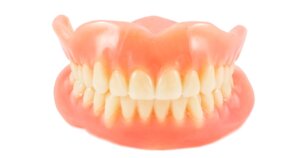
Denture Post-Insertion Instructions
Denture Post-Insertion Instructions What You Should Do After Receiving Your Denture To Ensure Comfort And Durability Cosmetic dentures can help you regain the look, feel
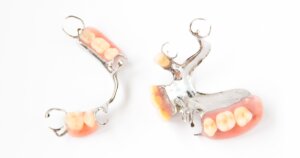
Denture Reline
Denture Reline What Is A Denture Reline? As time goes by, Dentures, the removable prosthetic teeth used to replace missing teeth, can start to lose
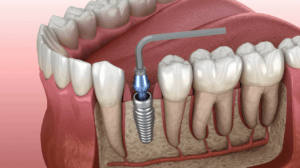
Immediate Dental Implant Placement
Immediate Dental Implant Placement What Is Immediate Dental Implant Placement? Immediate Dental Implant Placement is a revolutionary approach towards dental implants that offers numerous advantages
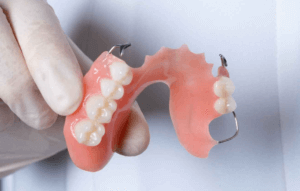
Acrylic Partial Denture
Acrylic Partial Denture What Is An Acrylic Partial Denture? An Acrylic Partial Denture is a removable partial dental prosthetic designed to replace one or more
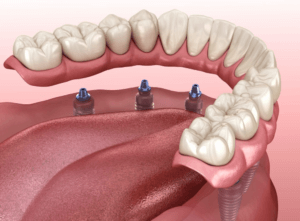
Implant Denture
Implant Denture What Is An Implant Denture? An Implant Denture, also known as an implant-supported overdenture, is a dental appliance designed to restore missing teeth
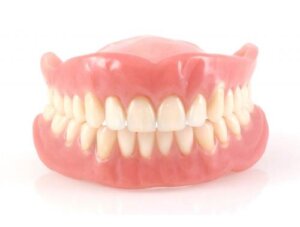
Immediate Complete Denture
Immediate Complete Denture What Is An Immediate Complete Denture? If you’re about to undergo a dental procedure that involves the removal of all your natural

